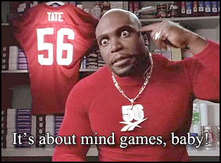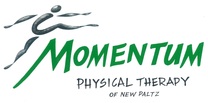|
Having come across yet another article and research study highlighting the meteoric rise of injury rates with young athletes specializing in one sport, it got me thinking about what many of us older (and not necessarily wiser) adults do on a regular basis, especially us runners. How many of us actually get out of our comfort zone of running regardless of speed or interval/distance? How many of us actually mix it up on a regular basis? Oftentimes, we fall into that specialization category at some point or another much like young athletes these days, and understandably so given our schedules. It is no surprise then that running related injuries are so common. 
With winter fast approaching, it is a perfect time in the northeast to break the habit of specialization temporarily, and consistently get out of your comfort zone so that you can come back stronger and reduce the likelihood of injury during the busier months of training and racing. It is your chance to build whole body robustness and resiliency as you can explore other movement patterns besides running straight ahead. This idea is especially important because running isn't just a single plane activity. While the majority of movement is forward obviously, there is a lot going on side-to-side and with rotation, mainly in terms of stabilization. This is where getting out of your comfort zone really pays dividends as you can challenge all 3 planes of movement resulting in improved running efficiency and, more often than not, fewer injuries.
Some ideas for the winter: 1. Drill work. Think form and technique and reinforcing the skills required for an efficient running gait. Regardless of your individual style, there are certain foundational skills worth mastering to improve performance which doubles as a countermeasure to many common running related injuries like tendinitis and stress syndromes. A great resource for guidance and ideas is Chris Johnson as he is constantly posting excellent videos related to this very topic. To be perfectly honest, this is a great adjunct to training regimens year round anyway. 2. Strength Training. Like drill work, this is also highly encouraged to incorporate into your training routine on a regular basis as there is no downside to strength. However, during the off season of winter, different goals can be addressed and different training strategies can be used. It is a great time to train more as a total athlete working on some areas that might be missed during the busier seasons and stress total strength in all planes of movement. Variations of multi-joint exercises like dead lifts, squats, pulls and presses along with unilateral versions is a way to help balance and bulletproof your body for the demands of running. For inspiration, ideas and intelligent programming, check out Ben Bruno's YouTube channel. You will not be disappointed. 3. Cross Country Skiiing. I've not come across a more challenging total body activity, except for rowing possibly, than cross country skiing. You don't have a choice but to use every part of your body which makes for a highly efficient exercise. Both styles of cross country skiing, skate and classic, are demanding but skate can be particularly advantageous since you spend more time in multiple planes of movement working different muscle groups than the straight ahead style of classic. It's also faster and more enjoyable in my opinion. The Shawangunk Nordic Ski Association is a great resource to keep you up to date on all of the trails and conditions locally. 4. Snowshoeing/Winter Hiking. Whether or not there's snow, getting out on some of the trails and high peaks around here, especially in the Catskills, is an excellent workout. There is plenty of variation and level of difficulty making it accessible for all skill levels. Hop on some single track to add another element of difficulty and to improve your technical proficiency on some of the gnarly terrain. Add snow to the mix and then you can throw on a pair of snowshoes making for a completely different challenge and experience. 5. Swimming. For those that want to stay inside, swimming is always an excellent alternative (or so I'm told since I'm still in a perpetual learning phase). Like cross country skiing, this is another total body activity that will engage different muscle groups than running does allowing you to be more of a complete athlete who happens to run instead of only a runner. Winter doesn't have to be a true off season and you can break the cycle of specialization. It can be the perfect time to make gains in a variety of ways that can work in your favor come springtime when you're logging your miles again. So get out of your comfort zone and reap the game changing rewards of improved performance and fewer injuries this year! Knowledge = Power; Share The Power:
0 Comments
Earlier this summer, I became another victim of Lyme disease in the Hudson Valley. Shocking, I know. It's pretty amazing I've made it 31 years before finally succumbing to one of those nasty little ticks considering how much time I spend outside and in the Shawangunk Mountains. Thank goodness I had a successful and relatively uneventful course of treatment with antibiotics. When it was confirmed I had Lyme, I was ticked off to say the least so when talking with friends and family, I was telling them that Lyme got stuck with me, not that I got stuck with Lyme. It was a simple shift of my mindset but I was determined to beat the you-know-what out of that stupid tick and its "gift" to me. It messed with the wrong human!  But it also got me thinking about how people and clients I have worked with tackle injuries, pain and physical limitations. More often than not, I have a very good idea of who will do well with physical therapy and who might not be as successful before I even start treatment. Although they are contributing factors, it usually isn't age, gender, fitness level or severity of injury that predicts success. It is a positive mindset and "what do I have to do to beat this?" attitude that makes a huge difference versus a "why did this happen to me?" attitude. I realize I am speaking in generalities and there are always exceptions to the rule but time and time again those that jump head on into whatever challenge they face and are motivated to do whatever it takes to get better usually do. I am reminded of one of my favorite clients from a few years ago. At the time, she was 70 years old and had fallen resulting in ligament tears on both sides of her right elbow. It is bad enough when you tear one a la Tommy John, let alone two! One major surgery later to repair the ligament damage and she was scheduled for her physical therapy evaluation with me. Right off the bat I had a good feeling about her because "she didn't have time to be slowed down" by this. She wanted to get to work and I got lucky because she made my job very easy. Given her age, severity of injury and tissue quality, it would not be unreasonable to think she might end up with some limitations after such a major injury and surgery but again "she didn't have time for that". Couple that attitude with a great sense of humor and she beat all expectations and then some. I am convinced that her success was largely due to her positive mindset and less about my skill as her physical therapist. So my question is when pain, injury and physical limitation shows up for whatever reason, who got stuck with who? I prefer to think that it got stuck with me and picked the wrong human to mess with. I encourage you to think the same. Knowledge = Power; Share the Power: |
Dr. Greg Cecere
Your personal physical therapist, movement educator and knowledge dispenser. Newsletter Sign Up
Enter your name and email to get Momentum PT's Movement Manual delivered straight to your inbox! It's your free monthly newsletter and guide to moving better, feeling better and living better! Archives
April 2017
Categories
All
Disclaimer:
The contents of this blog is meant for educational purposes only. Momentum Physical Therapy of New Paltz and Dr. Greg Cecere are not responsible for any harm or injury that may occur due to any information on this blog as it is by no means a substitute for a thorough evaluation by a medical professional. |
|
Momentum Physical Therapy of New Paltz, PLLC. Copyright © 2013-2024. All Rights Reserved.
Disclaimer: The contents of this site is meant for educational purposes only and utilization of any of the material is a personal choice. Momentum Physical Therapy of New Paltz and Dr. Greg Cecere are not responsible for any harm or injury that may occur due to those choices. This site is by no means a substitute for a thorough evaluation and guidance by a licensed medical professional.
|
 RSS Feed
RSS Feed
